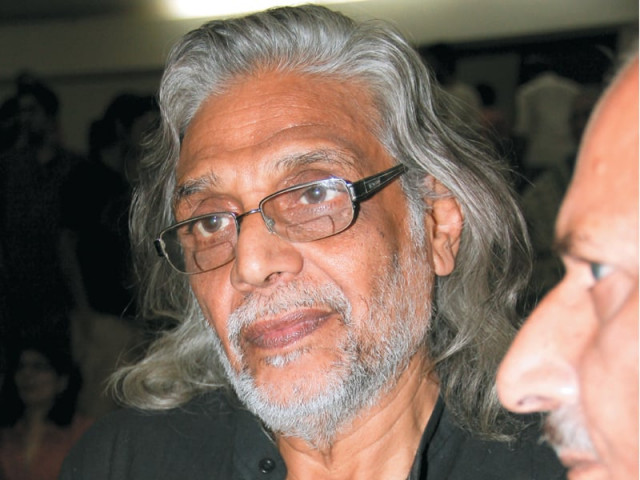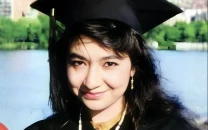Faiz and Muzaffar Ali: For the love of art
What is the connection between Faiz and Ali.

Faiz and Muzaffar Ali: For the love of art
In a letter poet Faiz Ahmed Faiz sent out to Indian film-maker Muzaffar Ali, the poet wrote “Muzzafar Ali’s Gaman is a poem in visuals. Its tragic lyricism and muted eloquence is deeply perceptive. It’s sensitively conceived and a truthfully captured slice of reality around us, the beauty and the heartbreak of the human situation makes it a sheer delight, a veritable tour de force.”
Over the years, Ali has developed a close association with Lahore and Pakistan. Last year, the late governor of Punjab Salmaan Taseer held a book launch ceremony for Ali’s book Sufis of Punjab, which Taseer had called ‘a major contribution to Punjabi culture’.
However, this week it was his relationship and association with Faiz that was in the spotlight. Ali had met Faiz on several occasions but their association strengthened, not from their personal interaction, but, rather, from Faiz’s Urdu poetry, the themes of which have had influence on Ali’s film-making. As a director, Ali has always avoided mainstream cinema and focused more on avant-garde films.
The Faiz Foundation Trust held a three-day screening of films by the Indian film-maker at the Human Rights Commission of Pakistan (HRCP) Auditorium in Lahore. Ali ,67, comes across as a rock star at first glance, with his long grey hair, glasses, salt and pepper beard and casual attire of black jeans and a black shirt.
“Parallel cinema in India has become part of the mainstream culture,” says Ali.”I could have done the same films with a lot of money and multi-cameras, but my beliefs and thoughts are rooted in the ground and that can’t change.”
Ali’s films are known for making the best use of classical subcontinental music and also for making an effort to capture the subcontinent’s history in the most radical and authentic form.
Gaman, (1978), tells the tale of a young, unemployed man, Ghulam Hussain, who, because of economic and social circumstances, is forced to migrate to Mumbai. The film, where Ali delves into several philosophical questions has been influenced by Faiz. Other films such as Anjuman, Agaman, Sheeshoun Ka Maseeha and his most famous film Umrao Jan explore his passion for Sufi thought and progressive culture.
“I had met Faiz four or five times and each time it was a new experience. For me I have deeply been influenced by him,” said explains Ali.
Ali’s following is almost cult-like, and the festival saw a full house on all three days, with many of his fans stating that Ali is the only ray of hope in subcontinental film-making.
“He is a great director, and he has given some of the best films to Indian cinema,” says fashion designer Fatima Butt.
Faiz’s daughter Moneeza Hashmi states that the idea of the festival was to build bridges between countries through cultural exchange. She adds that even though she did not know much about her father and Ali’s relationship, there was definitely a bond of respect between the two.
Published in The Express Tribune, October 11th, 2011.



















COMMENTS
Comments are moderated and generally will be posted if they are on-topic and not abusive.
For more information, please see our Comments FAQ